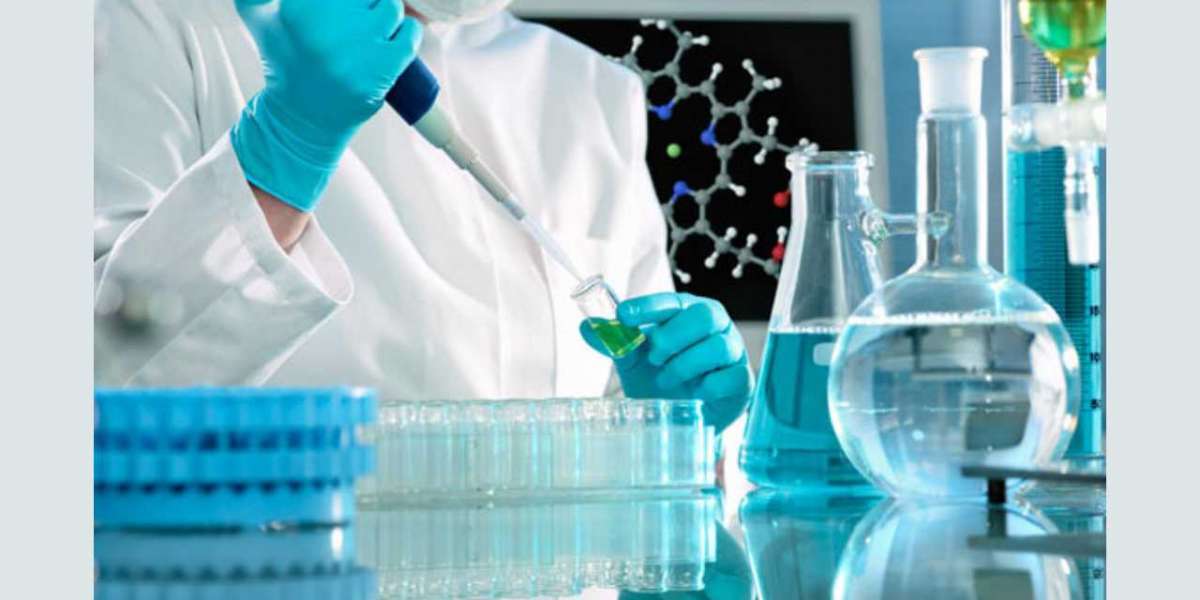NABL Approved Lab: A Comprehensive Guide to Quality and Standards
In today’s fast-paced world, quality and reliability in testing laboratories play a vital role in ensuring accuracy and consistency. Whether you're looking for clinical testing, calibration, or product validation, choosing the right NABL approved lab is crucial for reliable outcomes. This article delves deep into what makes these labs significant, their processes, and how they ensure adherence to global standards.
Understanding NABL Accreditation
What is NABL Accreditation?
The National Accreditation Board for Testing and Calibration Laboratories (NABL) is an autonomous body under the Quality Council of India. It provides accreditation to laboratories that meet stringent quality criteria, ensuring competence and technical reliability.
Why is NABL Accreditation Important?
Accreditation by NABL is a mark of credibility and consistency. It assures that a lab meets internationally recognized standards, providing reliable and accurate results every time.
Key Features of NABL Approved Labs
Global Standard Compliance
NABL accreditation follows ISO/IEC 17025, ensuring labs are technically competent. This makes them globally recognized and accepted.
Competence in Testing and Calibration
Labs undergo rigorous assessments to verify their technical expertise. This includes staff qualifications, equipment accuracy, and adherence to protocols.
Regular Audits for Quality Assurance
Periodic audits ensure the labs maintain the required standards. This ongoing monitoring ensures consistent performance.
Advantages of Choosing a NABL Accredited Lab
Assurance of Reliable Results
The stringent processes ensure accurate and repeatable results, whether it’s for healthcare diagnostics, food safety testing, or industrial calibration.
Enhanced Credibility
Accredited labs are trusted by industries, regulatory authorities, and customers. This credibility often translates to better business opportunities and customer trust.
Faster Approvals and Certifications
Using an NABL-accredited lab can speed up regulatory approvals, as these labs meet all the necessary criteria for compliance.
How to Identify a NABL Approved Lab
Check the Accreditation Certificate
Every accredited lab has a certificate that specifies its scope of accreditation. This document ensures the lab is authorized for specific tests and calibrations.
Visit the NABL Website
NABL maintains an updated list of accredited labs on its official website. This is a reliable way to verify a lab’s accreditation status.
Direct Verification
You can also directly inquire about the accreditation from the lab itself, ensuring transparency and reliability.
The Role of NABL Accreditation in Healthcare
Ensuring Accurate Diagnostics
In healthcare, precise results can mean the difference between life and death. Accredited labs provide unmatched reliability in testing.
Improving Public Health Outcomes
By maintaining high-quality standards, these labs contribute to better healthcare outcomes and disease management.
Industries That Rely on NABL Accredited Labs
Healthcare and Medical Research
Accredited labs provide reliable diagnostic services and research support, ensuring quality in healthcare delivery.
Food and Agriculture
Testing for food safety, contaminants, and nutritional value is crucial for regulatory compliance and public health.
Engineering and Manufacturing
Product quality and safety depend heavily on reliable calibration and material testing.
Environmental Testing
Monitoring air, water, and soil quality is essential for sustainable development, and NABL-accredited labs play a vital role here.
How NABL Accreditation Benefits Businesses
Improved Market Access
Accreditation often serves as a passport for international markets, ensuring products meet global standards.
Cost Efficiency
Accurate testing reduces the risk of product recalls, rework, and penalties, saving businesses significant costs.
Customer Trust
Being associated with accredited labs enhances brand reputation and trust among consumers.
Steps to Get NABL Accreditation for Your Lab
Understand the Scope
Identify the type of testing or calibration your lab specializes in and ensure you meet the required standards.
Infrastructure Setup
Ensure your lab is equipped with state-of-the-art technology and qualified personnel.
Documentation
Prepare detailed procedures, quality manuals, and records for every process in your lab.
Application Process
Submit your application on the NABL portal, specifying your scope and capabilities.
Assessment
An NABL team will visit your lab for a comprehensive evaluation of your processes and infrastructure.
Final Approval
Once all criteria are met, you’ll receive your accreditation certificate, valid for two years.
Conclusion
In a world driven by precision and quality, NABL accreditation ensures that testing and calibration labs deliver on their promises. Whether it's healthcare diagnostics, industrial applications, or food safety, choosing a NABL approved lab is the best way to ensure accurate and reliable results.
FAQs
1. What is the difference between NABL accreditation and ISO certification?
NABL accreditation focuses specifically on testing and calibration labs' technical competence, while ISO certification covers broader quality management systems.
2. How often do NABL-accredited labs undergo audits?
Labs are audited annually to ensure they continue meeting NABL’s stringent standards.
3. Can a lab lose its NABL accreditation?
Yes, a lab can lose accreditation if it fails to maintain the required standards or violates NABL guidelines.
4. How does NABL accreditation impact patient care in healthcare?
It ensures reliable diagnostic results, enabling accurate treatment decisions and better patient outcomes.
5. What is the validity of an NABL accreditation certificate?
The certificate is typically valid for two years, after which the lab must undergo re-assessment.
6. Are NABL-accredited labs internationally recognized?
Yes, NABL accreditation is recognized under international agreements like ILAC-MRA, making it globally credible.
7. What factors are assessed during NABL accreditation?
Factors include staff qualifications, equipment calibration, testing protocols, and quality management systems.
8. Can small-scale labs apply for NABL accreditation?
Yes, NABL accreditation is open to labs of all sizes, provided they meet the required standards.
9. How does NABL accreditation benefit the food industry?
It ensures accurate testing for food safety and compliance with regulatory standards, protecting consumer health.
10. Is NABL accreditation mandatory for all labs in India?
While not mandatory, it is highly recommended for labs seeking credibility and recognition for their testing and calibration services.







